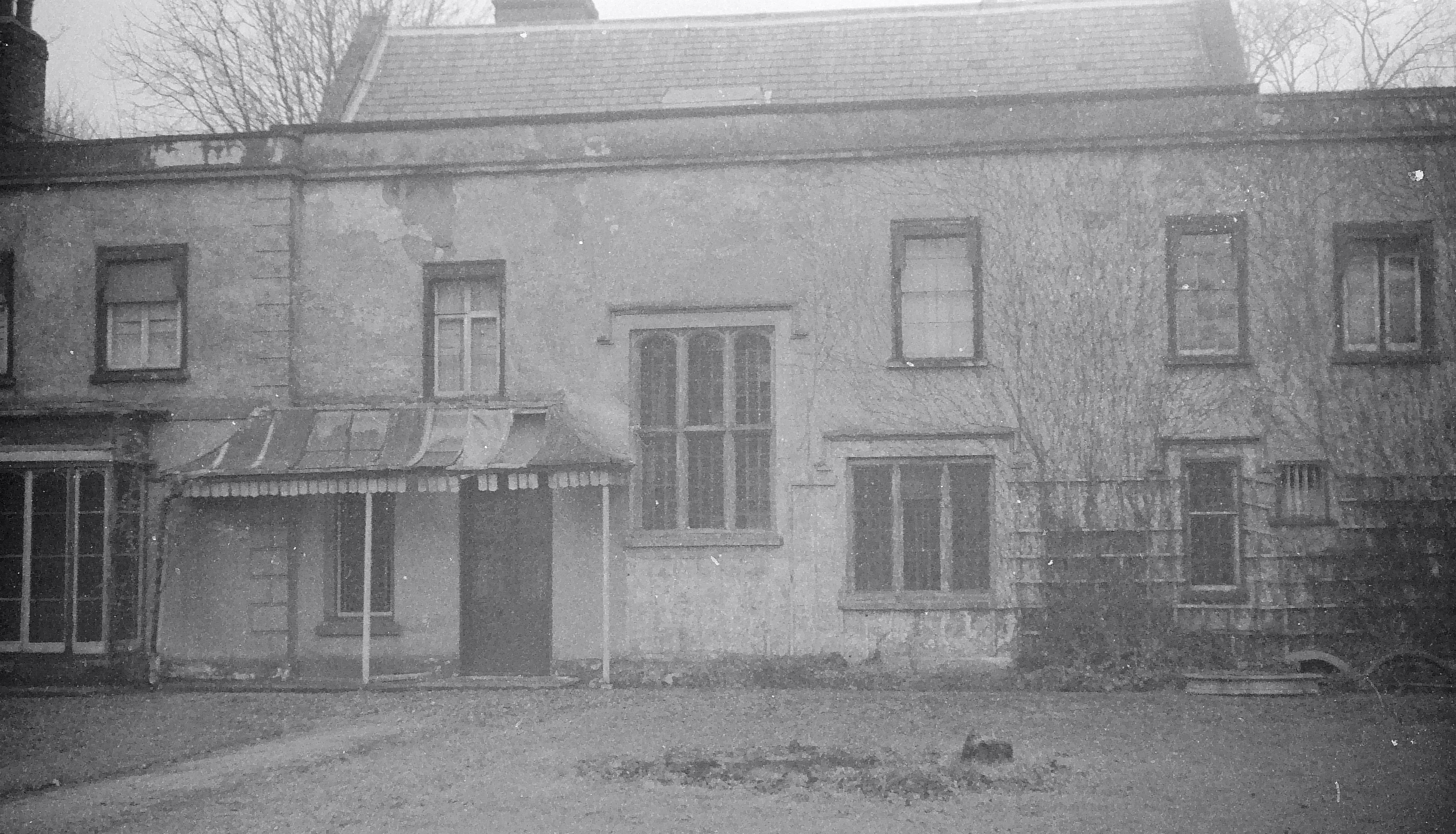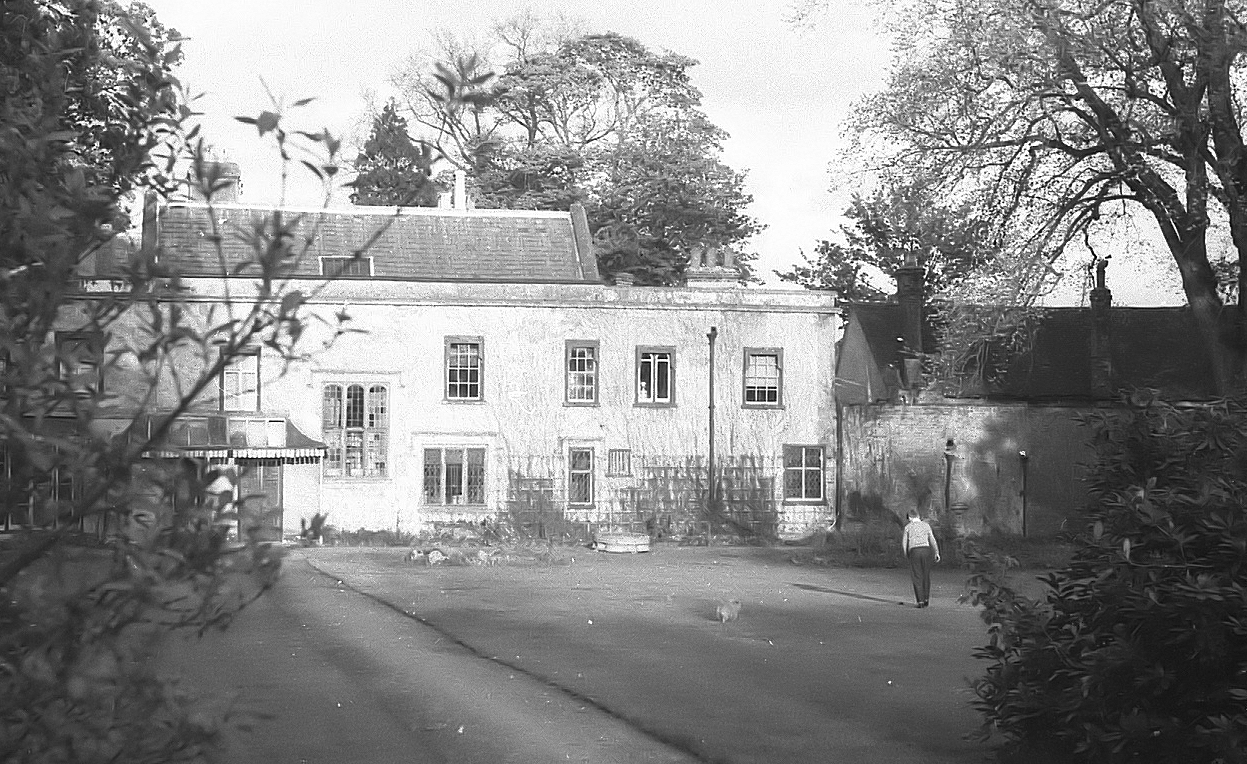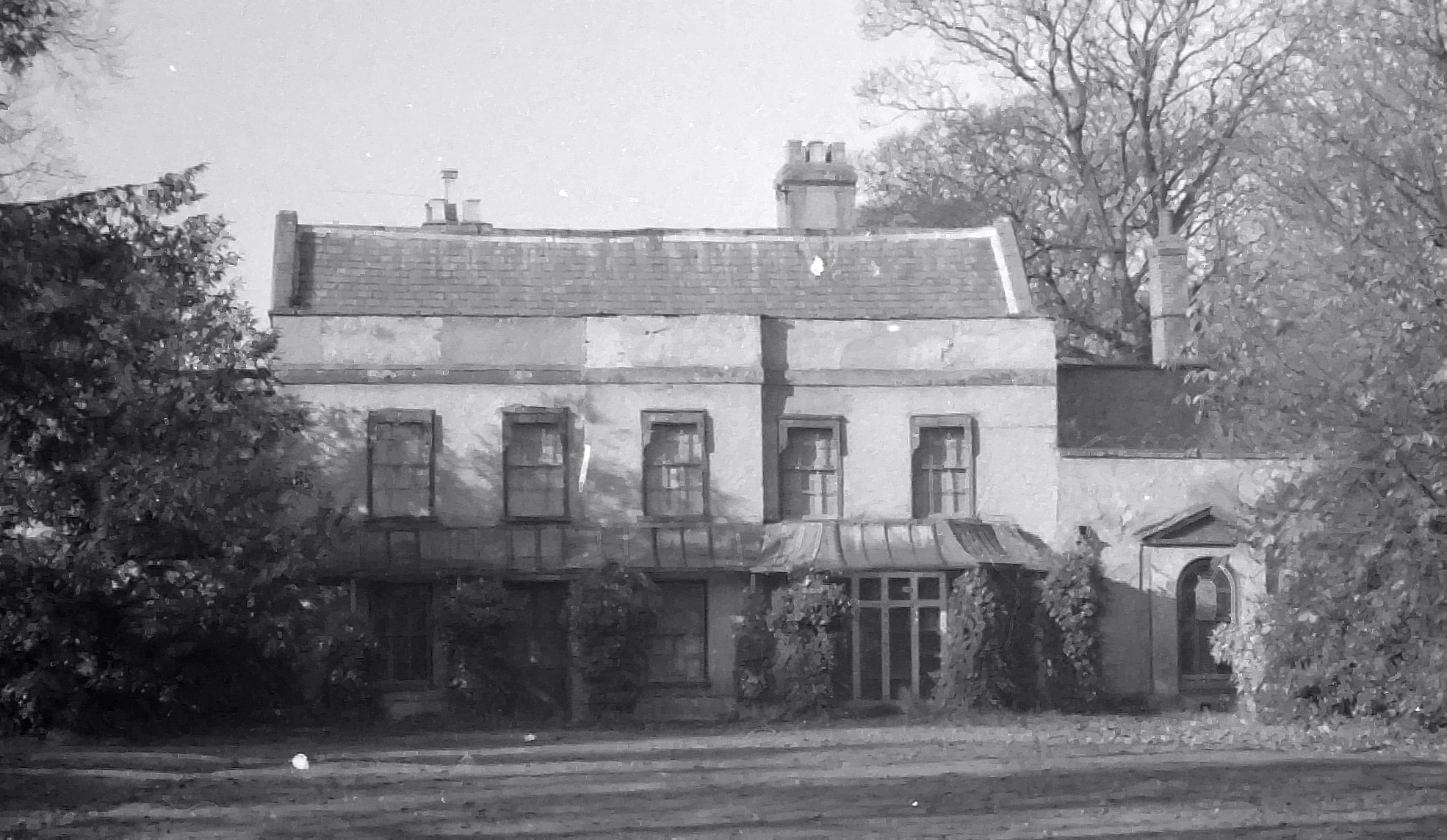Updated 17 February 2022; mostly correcting old links
I belong to several Facebook groups about my home town, Waltham Cross and Cheshunt in Hertfordshire. On one of them there was a thread about the park which was less than 10 minutes walk from my house and which I knew well from a very early age. Needless to say someone found and posted a few old photographs and postcards which triggered me to remember what I knew about the park and its surroundings.
Cedars Park covered part of the site of the old Theobalds Palace, which was built around 1560 by William Cecil and where he entertained Queen Elizabeth. The Palace was subsequently “stolen” from Robert Cecil, Lord Burghley, by James I in exchange for Hatfield House. It was here that Prince Charles (later Charles I) spent much of his childhood. James I died and Charles I was proclaimed King here. Although few contemporary images of Theobalds Palace survive, it appears to have been a late Tudor masterpiece. So needless to say it was razed to the ground by Oliver Cromwell’s merry men.

An 18th century Engraving of Theobalds Palace
Subsequently the estate — used by James I as a deer park — was split up and an 18th century house built on the site of the palace. Old Palace House, as I knew it, even contained a couple of the original Tudor windows from the palace, but apart from that the exact location of the palace was lost beneath the ground. As befitted a large house of its period, Old Palace House had formal gardens, stables, a kitchen garden and a large orchard. In 1919 the adjoining area was given to the local council as a municipal park: Cedars Park, so named because it contained two enormous Cedars of Lebanon which it is suggested are contemporary with Theobalds Palace. The park also contained two very old Mulberry trees which may also have been contemporary with the Palace.
I knew Cedars Park well in the 1950s and ’60s — basically from the time I could walk, and maybe earlier — less well in the ’70s when I was away at university. Since the ’70s the park has been extensively remodelled and modernised; in the process there has been a great deal of archaeological work done and the ground layout of Theobald’s Palace is now pretty well documented.
The old lady who lived in Old Palace House must have died in the very early ’60s; the house was shut up and ownership passed to the local council. It is at this period, the mid-60s, that I knew Old Palace House and its grounds. The house itself was burned down — as usual in suspicious circumstances — in the early ’70s and it is this which, eventually, started the process of clearing the site and extending the park.
One of the first acts, after making the buildings safe (ie. demolishing most of what was left) was to grub out the orchard, turn it into a field and tack it on to Cedars Park by making an opening in the dividing (ancient) wall.
As you can see there is an awful lot of history here, so if you want to delve deeper you might want to look at:
For more on the history of Theobalds Palace see British History, Hertfordshire Genealogy and Hertfordshire Memories.
For more on the history of Cedar’s Park see Broxbourne Borough Council and Wikipedia; there is also a website for Cedar’s Park.
There is lots of detailed information on the archaeological excavations around Cedars Park, mostly done by Oxford Archaeology, in their site reports here and here.
I also wrote briefly about Old Palace House in a 2009 blog post.
What now follows is my recollection of Cedars Park, and Old Palace House and grounds, as I knew them in the ’50s and ’60s.
First of all an annotated sketch map, then a few more recollections.
You will want to look at this in a larger size, so click the image

Not to scale. North at the top.
A : Main entrance
B : Bridge over the stream (such as it was, usually dry)
C : Toilets
D : Monkey Puzzle tree
E : Cedar Tree (both were also very old when I knew them in ’50s & ’60s)
F : Flint-built follies
G : Old gate in the wall; later made into a larger opening when the orchard was grubbed out and the field made part of the park.
*H : Council Park Department hothouses & cold-frames (which grew most of the flowers of civic occasions and for formal planting around the town)
*I : Hothouse conservatory which housed pot-plants for formal civic occasions; it was always full of colourful pants like calceolaria and coleus
J : Conservatory shelter
K : Horse Chestnut trees
L : Pink specimen Horse Chestnut tree
M : Mulberry tree (both were very old; maybe as much as 300 years in 1950s); blimey did the fruit make a mess on the grass!
N : Herbaceous borders against walls
O : Very old wall, probably late-16th or very early 17th century; had niches for bee skeps
*P : Park-keeper’s “lodge”
*Q : Old Palace House
R : Rose walk/arcade
*S : Stables
T : Conservatory containing a glass case with two(?) stuffed tigers; later a colony of live budgerigars was added. In the early days (’50s) you could walk round the conservatory containing the glass case of tigers but obviously that stopped once the budgies were installed.
*U : Old walled kitchen garden (I think)
V : Remains of concrete plinth which had supported WWI tank
*W : Huge old walnut tree, which was the only tree kept (in the middle of the field) when the orchard was grubbed out and the resulting field made part of the park
*X : Driveway to Old Palace House
Y : Formal flowerbeds
Z : Thatched shelter
[Note that everything marked * plus Old Palace House garden, lawn, orchard and the rough land was outside the perimeter of Cedars Park as I knew it in the ’50s and ’60s (although the park keepers kept an eye on most of it once Old Palace House was owned by the council).]
Here are a couple of postcard views of Cedars Park from, I think, the early 1950s.

This is looking towards the main gate (A) from roughly the point (V) on the plan.

This shows the thatched shelter (Z) with the mulberry tree (M) and cedar tree (E) beyond from in front of the follies (F) on the plan.
By the time I knew them, all the areas of Old Palace House and grounds were pretty well unkempt: lawns not cut; shrubs not pruned; orchard trees not cared for; house shut up and damp. We were occasionally allowed access to the Old Palace House grounds on a Sunday afternoon because we knew one of the park keepers who worked something like one Sunday in three. Once or twice we were taken over the house and stables.
 This is the rear of Old Palace House in about 1935. Note the two, possibly three, Tudor window embrasures.
This is the rear of Old Palace House in about 1935. Note the two, possibly three, Tudor window embrasures.
The orchard, full of very old fruit trees, was a delight despite being overgrown with grass and bramble. A handful of times, over a couple of autumns, we were allowed to go in there and help ourselves to whatever fruit we could carry away (usually in rucksacks). The orchard contained just about every imaginable old variety of apple and pear. And the apples were to die for; wonderful varieties that one never sees today, many of which we couldn’t even identify. Obviously there were also things like cherry trees — stripped by the birds early in the season! I think I remember raspberry canes too. And then there was the enormous mature specimen walnut tree (that’s my memory, anyway) which stood in the middle. This walnut tree was the only tree kept when the orchard was grubbed out (in the early 70s?); I have a memory that my mother painted it in wonderful autumn colour, standing majestically alone in what was by then a field belonging to the park. While one deplored the orchard being grubbed out, the trees were so old and neglected that there was realistically little other option.
Also, knowing the park keeper, we sometimes got a look round the hothouses and the conservatory. The latter was always full of colourful plants being grown for civic occasions — calceolarias, coleus and I forget what else. Outside there were cold-frames and I think an area used for bringing on rose bushes, trees etc. Plus the inevitable sheds housing big lawn mowers and other machinery, potting sheds etc. The hothouses were heated by some old coal-fired furnaces, which had to be stoked up last thing at night and would apparently just about last until the morning.
Going back to the park, I loved the Monkey Puzzle Tree, the Cedars, the Mulberry trees; I remember rolling down the bank from the path by the Monkey Puzzle; and with the large number of Horse Chestnut trees it was a great place to hunt for conkers. I never did much like the tigers or the follies. Nevertheless the park was for me a fairly magical place.
As I grew into my teens and beyond I came to much more appreciate the old walls and Old Palace House with its Tudor windows. Indeed I remember drawing the Tudor windows (badly, it has to be said) for Art homework; that would have been 1966 or ’67. And I have the following three, not very good, B&W photographs of Old Palace House from around 1964 (they may have all been taken on the same day) …

This shows the derelict state of the house after only a few years empty. Note the two Tudor windows at centre, plus a possible third, smaller one, to the right.

Another image of the rear of Old Palace House with a surprisingly tidy looking lawn. This must have been taken by my father as the young teenager (right middle-ground) is me; note also a small dog.

And here is the front of Old Palace House, taken from the front lawn.
I also remember Theobalds Lane, between Cedars Park and Crossbrook Street (so the part off the right of the map) from the mid-1950s; it really was a country lane then. The land to the south was covered in glasshouses, which from memory grew tomatoes and cucumbers — as did a lot of the Lea Valley. The land on the north side had some glasshouses but also a couple of orchards, where I remember my mother buying apples in the autumn — that might even have been before I started school, so 1955 at latest. This was all demolished and grubbed out somewhere in the late ’50s and the housing estate built — and completed long before I went to the Grammar School in 1962 and possibly before Theobalds Grove Station reopened in November(?) 1959.
I’ll write more if I come across any more photographs.
 This is a large, coffee table-sized book full of photographs and maps of the now decommissioned and abandoned government bunker under north Wiltshire.
This is a large, coffee table-sized book full of photographs and maps of the now decommissioned and abandoned government bunker under north Wiltshire.



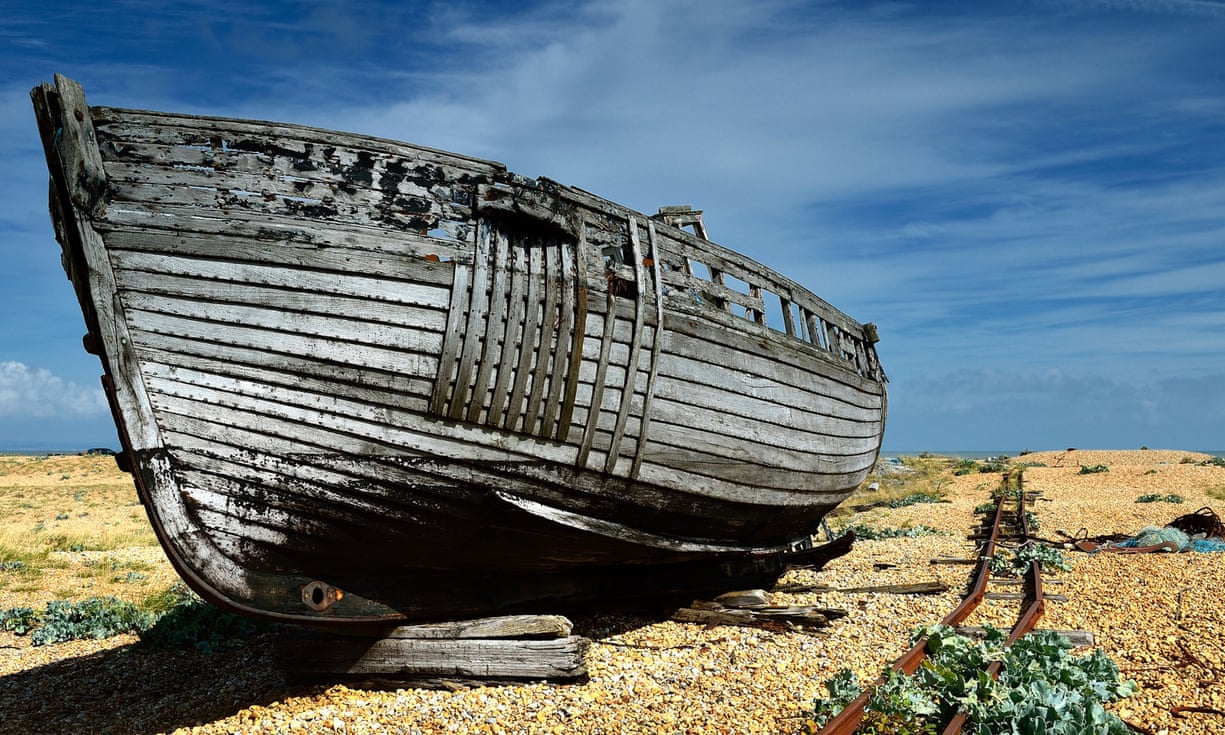
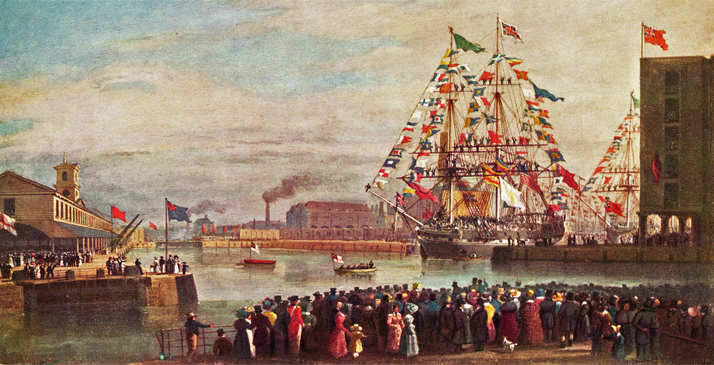





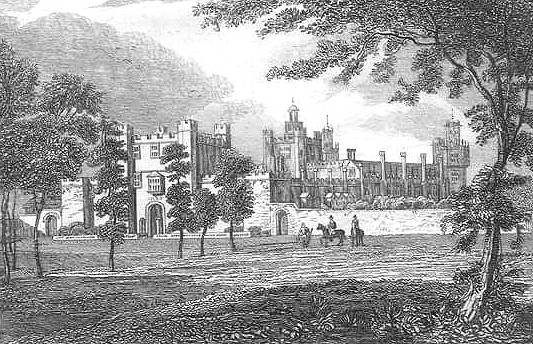
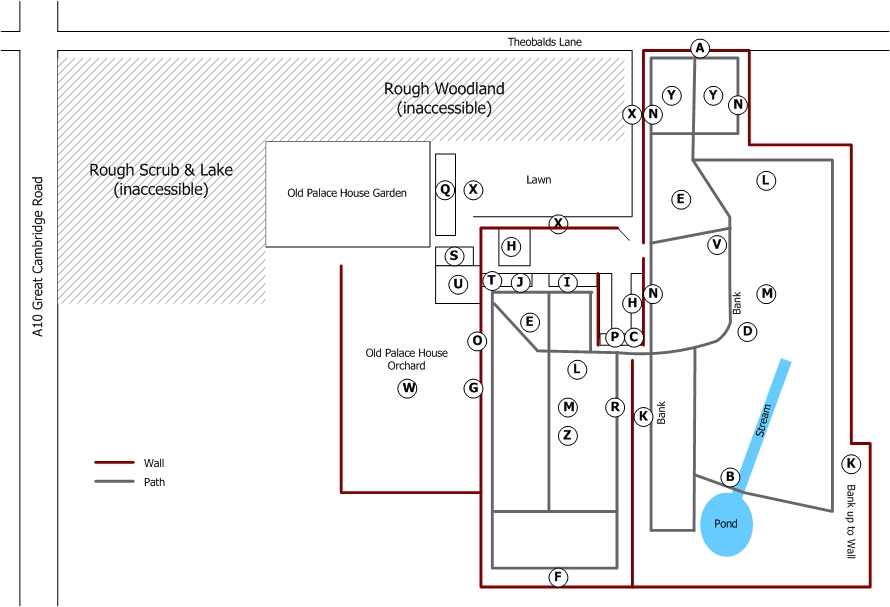
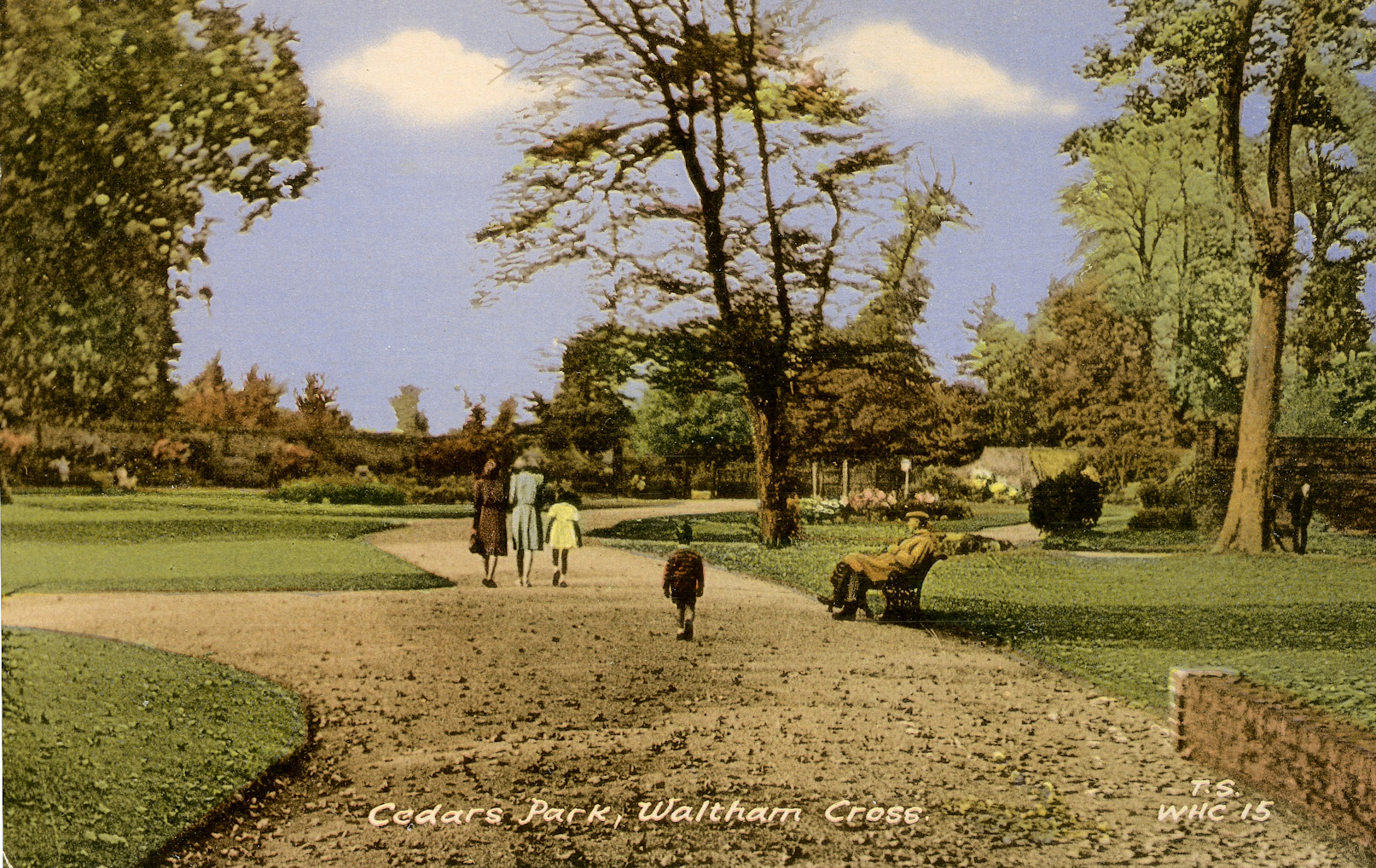
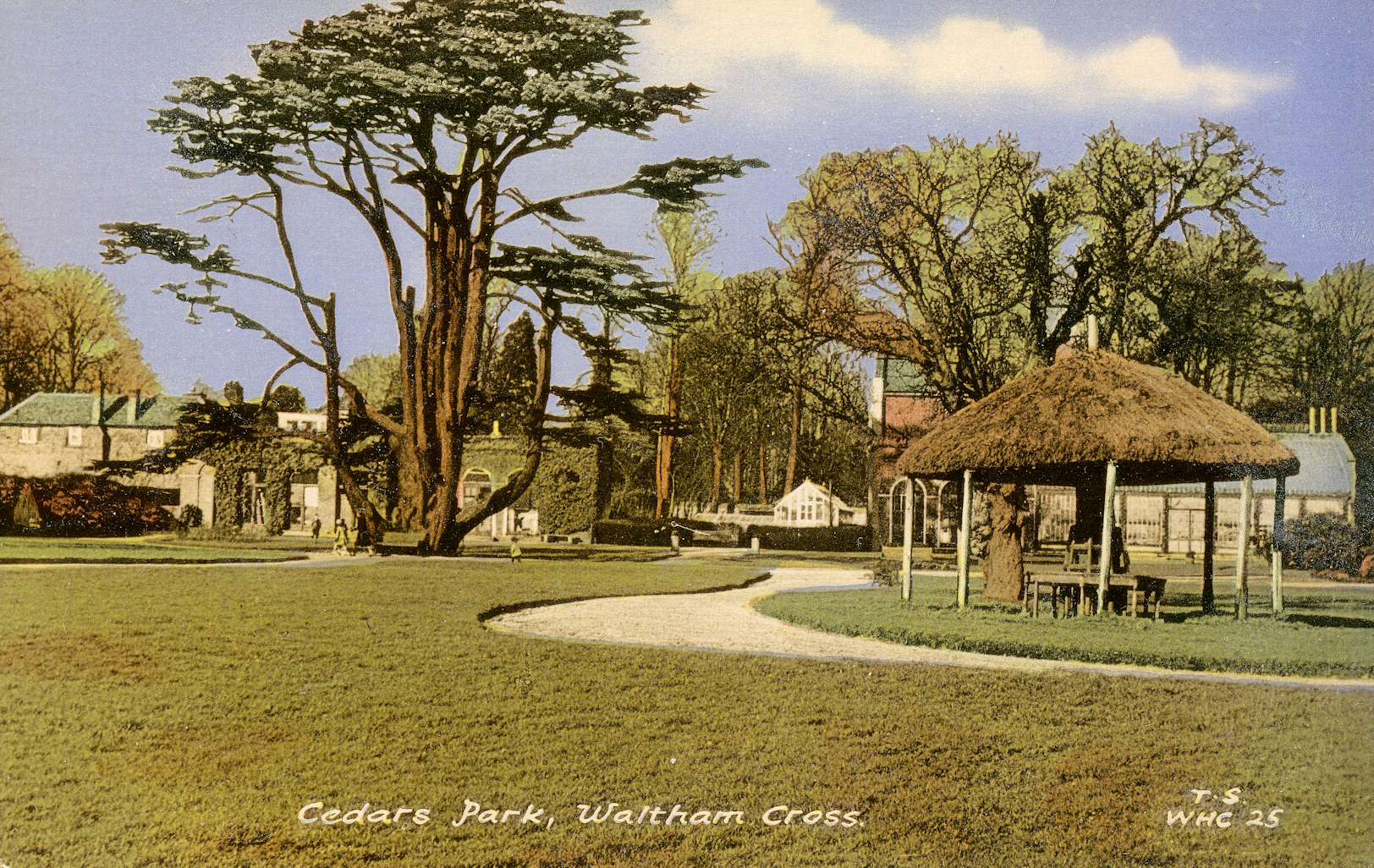
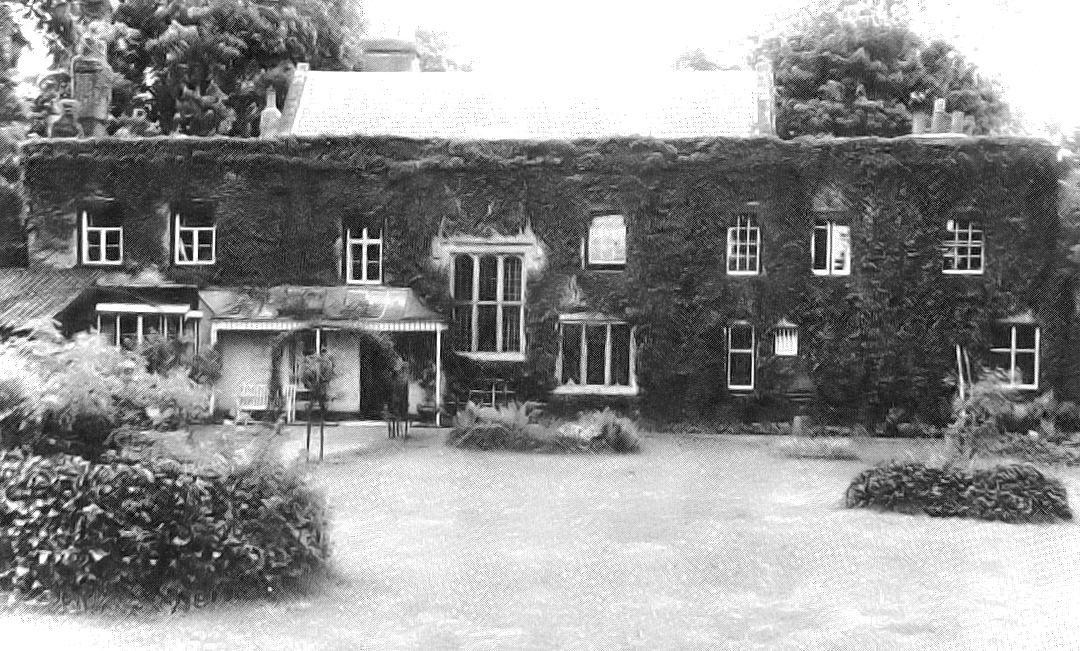 This is the rear of Old Palace House in about 1935. Note the two, possibly three, Tudor window embrasures.
This is the rear of Old Palace House in about 1935. Note the two, possibly three, Tudor window embrasures.